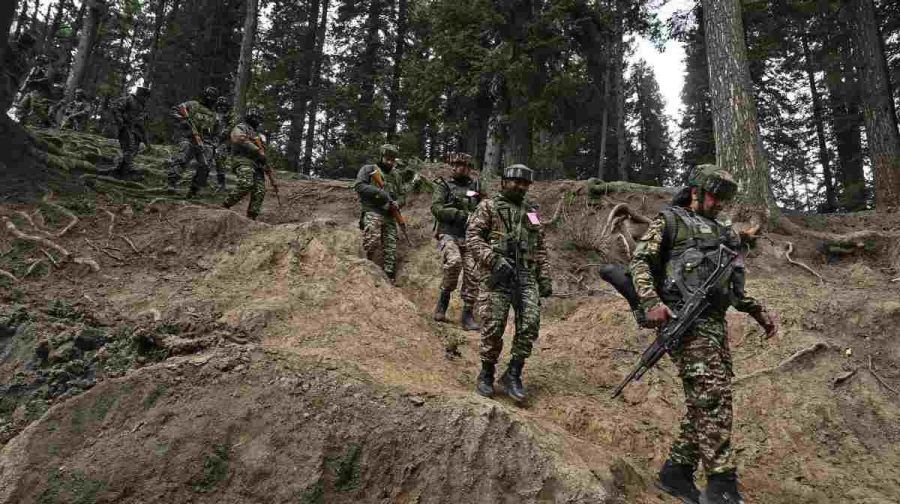
Tensions between India and Pakistan escalate following the Pahalgam terror attack that killed 26 people. India strengthens security measures and conducts drills, while cross-border firing continues. Prime Minister Modi vows to bring perpetrators to justice as diplomatic and military responses intensify.
The deadly terror attack in Pahalgam, Jammu and Kashmir, which claimed the lives of 26 people on April 22, has become a significant flashpoint in the already volatile relationship between India and Pakistan. The tragic event, which resulted in the loss of innocent lives, has fueled an atmosphere of heightened tensions between the two neighboring countries, with both sides on edge. In the aftermath of the attack, India’s security apparatus has been in overdrive, leading to speculations about a potential military response, while both political and military leaders have been actively engaged in discussions about the next steps.
The Pahalgam Attack and Its Aftermath
The Pahalgam terror attack, which took place in the picturesque town in Jammu and Kashmir, was carried out by terrorists with the intent to instill fear and disrupt peace in a region already marred by decades of conflict. The attack resulted in the deaths of 26 civilians, including locals and tourists, and left many others wounded. The scale and brutality of the strike served as a reminder of the enduring security challenges in the region and the constant threat posed by cross-border terrorism emanating from Pakistan.
In the wake of the attack, Prime Minister Narendra Modi convened a meeting with National Security Advisor (NSA) Ajit Doval to assess the situation and chart the next course of action. The Prime Minister’s strong words, vowing to pursue the perpetrators “to the ends of the earth” and promising that those responsible would face punishment “beyond their imagination,” have added fuel to the fire of speculation regarding India’s potential military response.
Heightened Security Measures
Following the attack, the Indian government, in collaboration with security agencies, has taken a series of steps to ensure the safety and security of its citizens. The Union Home Ministry has issued directives to all states, urging them to conduct drills to prepare for potential terrorist threats. These drills are seen as a crucial part of bolstering India’s civil defense mechanisms, which have been under increasing scrutiny given the evolving nature of the threats posed by hostile forces.
On May 6, the Union Home Ministry is set to review these security preparedness measures. The focus will be on conducting air-raid warning sirens, training civilians in self-defense strategies, and cleaning and maintaining bunkers and trenches, which may be required in the event of a “hostile attack.” The idea is to ensure that the public is well-prepared to respond quickly and effectively in times of crisis, as the nature of contemporary threats continues to evolve.
Cross-Border Firing and Diplomatic Fallout
As if the Pahalgam attack wasn’t enough to inflame tensions, cross-border firing between Indian and Pakistani forces has become a regular occurrence, with the two countries engaging in military skirmishes along the Line of Control (LoC) for the last 12 consecutive nights. This exchange of fire has led to casualties on both sides, further exacerbating the situation. These incidents are seen as a sign that Pakistan is either unable or unwilling to clamp down on terrorist elements operating from its soil, a matter that has long been a point of contention between the two countries.
Pakistan has denied any involvement in the Pahalgam attack, but India has made it clear that it holds Islamabad accountable for harboring terrorist groups that target Indian interests. This cross-border violence, coupled with the Pahalgam attack, has driven home the urgent need for both countries to find a way to de-escalate tensions and engage in meaningful dialogue, even though the chances of that happening anytime soon remain slim.
The Political and Diplomatic Dimension
In addition to the military and security measures, the diplomatic fallout from the Pahalgam attack is also significant. India has consistently called on the international community to hold Pakistan accountable for its role in facilitating terrorism, urging global powers to take a more active stance against the support provided to terror groups.
India’s strategic partnership with the United States, as well as its growing influence in the global arena, has prompted Western countries to take a more active interest in the tensions between India and Pakistan. However, Pakistan, with its strategic ties to China and its role as a crucial player in the region, continues to resist pressure to take decisive action against terrorist groups operating from its territory.
Conclusion: A Fragile Peace
The Pahalgam terror attack has once again highlighted the fragile nature of peace in the Kashmir region and the broader Indo-Pakistani relationship. The escalating tensions, marked by cross-border skirmishes, terrorist strikes, and hostile rhetoric, show no sign of abating anytime soon. With both countries locked in a deadly cycle of violence, the international community must step up its efforts to foster dialogue and ensure that tensions do not spiral into a full-scale conflict.
For India, the road ahead remains uncertain. The government’s commitment to punishing those responsible for the Pahalgam attack is unwavering, but the question remains: how far is India willing to go in its response? As the situation continues to evolve, the world watches closely, hoping for restraint and diplomacy to prevail over violence and escalation.

"Entrepreneurship is a story worth telling, and at SwiftNlift Group, we bring these stories to life. Our magazine showcases the journeys of ambitious entrepreneurs who have overcome challenges and achieved remarkable success. With every issue, we inspire, inform, and celebrate the limitless possibilities of innovation and determination."
651 N. Broad St.,
Suite 206, Middletown,
DE 19709, USA
Copyright Ⓒ 2023 – 2025 SwiftNLift. All rights reserved.